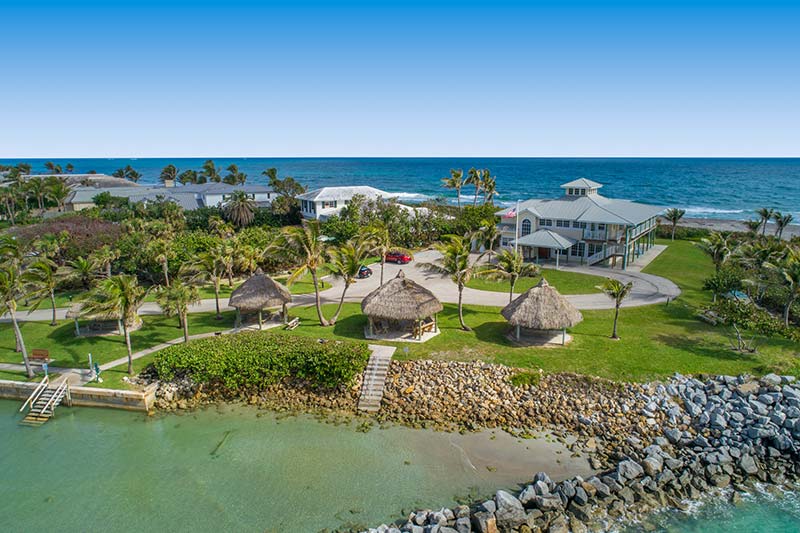Living in a beautiful coastal home in Florida is a dream for many. The stunning ocean views, the sound of waves, and the gentle sea breeze create an idyllic lifestyle. However, owning a coastal home in Florida also comes with its unique challenges, especially when it comes to safety. In this article, we will explore essential Safety tips for Florida coastal homes to ensure your home is well-protected and your peace of mind is intact.

Understanding the Risks
Floridas coastal regions are known for their beauty, but they are also prone to natural events such as hurricanes, floods, and erosion. Understanding these risks is the first step in safeguarding your home. According to the Florida Agents, living in coastal areas requires a keen awareness of potential hazards.
Hurricane Preparedness
One of the most critical safety tips for Florida coastal homes is to be prepared for hurricanes. This involves having a well-thought-out plan that includes securing your home, stocking up on essential supplies, and knowing evacuation routes. Installing hurricane shutters or impact-resistant windows can significantly reduce the damage caused by high winds.
Flood Insurance
Flooding is a common concern for coastal homeowners. Obtaining flood insurance is crucial as standard homeowners’ insurance does not cover flood damage. This insurance will provide financial protection in the event of a flood, allowing you to recover more quickly.
Regular Home Maintenance
Regular maintenance is vital to ensure your home remains safe and secure. This includes inspecting and repairing roofing, gutters, and downspouts to prevent water damage. It’s also essential to check for any signs of erosion around your property and take steps to mitigate it.
Protecting Against Erosion
Erosion can threaten the structural integrity of your coastal home. Planting vegetation and using retaining walls can help prevent soil erosion and protect your property. For more information on how to address erosion, visit Zoning Rules in Florida Coastal Towns.
Wildlife Awareness
Floridas coastal areas are home to diverse wildlife. Being aware of the local wildlife and taking precautions to protect your home is essential. This might include securing trash bins and avoiding leaving food outside to prevent attracting unwanted animals. Learn more about the local wildlife at Florida Coastal Wildlife.
Emergency Preparedness
Having an emergency preparedness kit is a must for any homeowner, especially in coastal areas. Your kit should include essentials such as water, non-perishable food, first aid supplies, flashlights, batteries, and a portable phone charger. Additionally, having a family emergency plan that outlines what to do in case of a disaster can significantly increase your safety.
Community Resources
Engaging with your local community can provide valuable resources and information about coastal living safety. Many communities have emergency response teams and offer workshops on disaster preparedness and response. These resources can be invaluable in ensuring your family’s safety.
Home Security Systems
Installing a home security system can offer peace of mind by monitoring your property and providing alerts in case of any suspicious activity. Many modern systems include features such as cameras, motion detectors, and remote monitoring, which are particularly useful for coastal homes.
Energy Efficiency
While ensuring safety, it’s also important to consider energy efficiency. Coastal homes can benefit from energy-efficient windows, insulation, and appliances, reducing energy consumption and costs. Additionally, harnessing solar energy is an excellent option for sustainable living by the coast.
Home Renovations
If you are planning renovations, consider materials that withstand coastal conditions. Rust-resistant metals, treated wood, and weatherproof finishes can prolong the life of your home while maintaining its aesthetic appeal. For more ideas on coastal home decor, visit Florida Coastal Home Decor Trends.
Insurance Coverage
Regularly review your insurance coverage to ensure it aligns with your current needs. This includes homeowners, flood, and windstorm insurance. It’s important to understand the coverage limits and identify any gaps that might leave you vulnerable.
Conclusion
Owning a coastal home in Florida is a wonderful experience, but it comes with responsibilities. By following these safety tips for Florida coastal homes, you can protect your investment and enjoy the coastal lifestyle with peace of mind. For more insights on coastal living, check out the Pros and Cons of Coastal Living in Florida.

FAQ
What is the importance of flood insurance for coastal homes?
Flood insurance is crucial as it provides financial protection against flood damage, which is not covered by standard homeowners’ insurance. It ensures you can recover more quickly after a flood event.
How can I protect my home from hurricane damage?
To protect your home from hurricane damage, install hurricane shutters or impact-resistant windows, secure outdoor items, and have a well-prepared emergency plan in place.
What materials are best for coastal home renovations?
For coastal home renovations, consider using rust-resistant metals, treated wood, and weatherproof finishes to withstand coastal conditions while maintaining your home’s aesthetic appeal.
This article contains affiliate links. We may earn a commission at no extra cost to you.

